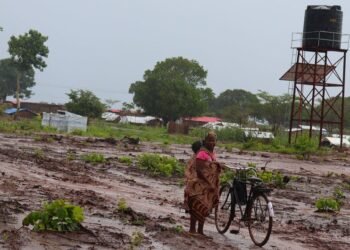Mali’s former prime minister, Moussa Mara, has been officially charged by the country’s junta with undermining state credibility, inciting public disorder, and opposing legitimate authority, after a social media post in support of detained opposition figures sparked backlash from the military regime.
Mara, who led the government for nine months a decade ago, came under investigation after a message he shared on X following a visit to political detainees in July. In the post, he expressed “unwavering solidarity with prisoners of conscience” and pledged that he would ensure “the flame of hope never fades in them.”
The cybercrime unit, which detained Mara for questioning on Thursday, cited this post as evidence of his intention to destabilize public order. The prosecutor argued that referring to the detainees as “prisoners of conscience” and stating his intent to “fight by all means” to support them amounted to an affront to state institutions.
Mara’s legal troubles come at a time of heightened repression in Mali. The West African nation has been under military rule since successive coups in 2020 and 2021 brought Colonel Assimi Goïta to power. The junta has since postponed promised elections and, in May 2025, formally dissolved all political parties and prohibited political meetings, citing the need to maintain public order. The move followed a rare surge in anti-government protests and was widely condemned by civil society organizations and the international community.

Charged For Undermining State Authority
Gen Assimi Goïta was named transitional president following the second coup in 2021 and originally pledged to restore civilian rule through elections. However, that timeline has been repeatedly delayed. Last month, Mali’s transitional parliament, handpicked by the military, granted Goïta a five-year term as president, renewable without elections. This decision solidified the junta’s grip on power until at least 2030, fueling fears of permanent military rule.
Moussa Mara’s prosecution is viewed by many as a further sign of political tightening. The former prime minister has become increasingly vocal in recent months, sharply criticizing the military government and publicly aligning with jailed opposition figures. His trial is scheduled for September 29, with legal experts warning that the charges may carry significant prison time under Mali’s current military penal code.
Beyond the political crisis, Mali’s economic outlook remains precarious. The International Monetary Fund projects modest GDP growth of 5% for 2025, driven largely by agricultural output, lithium extraction, and the expanding telecom sector. However, fiscal pressure from flood relief spending, coupled with climate-related challenges and energy shortages, continues to stifle economic stability. The poverty rate remains stubbornly high, and public confidence in the government’s ability to deliver reforms is waning.
The broader security landscape has also deteriorated. Since the withdrawal of both French forces and the United Nations peacekeeping mission, jihadist groups, including Jama’at Nusrat al-Islam wal-Muslimin (JNIM) and Islamic State in the Greater Sahara (ISGS), have rapidly expanded their operations. Military losses have mounted, and an estimated 380,000 people are now displaced internally due to escalating violence.
Compounding the crisis are ongoing reports of civilian casualties in joint operations involving Malian forces and Russian mercenaries, which have drawn sharp international criticism. Rights organizations have accused the government of facilitating abuses in conflict zones, contributing to a deepening humanitarian crisis and growing resentment against the junta.
As the trial date approaches, the case of Moussa Mara is fast becoming a litmus test for the military government’s tolerance of dissent. With civil liberties shrinking and military rule increasingly institutionalized, Malians now face a turbulent future marked by political suppression, economic fragility, and intensifying violence.
READ ALSO: New Tariff Policy Redefines US Global Trade Stance



















